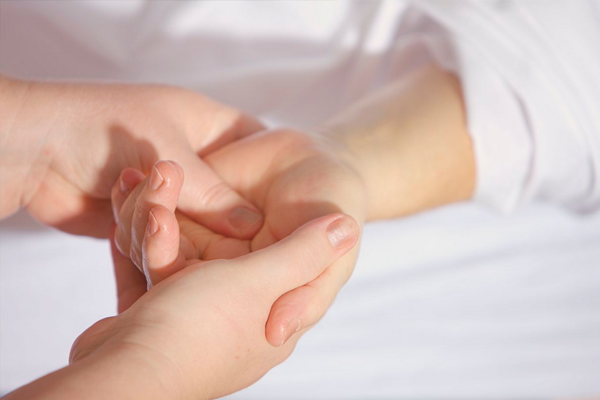The skin is the largest organ in our body and the one that gives us our appearance. But skin is not only a more or less beautiful coating, it is one of the most important protection and defense barriers against environmental aggressions that surround us. It has important functions: it helps to regulate body temperature, it participates in the balance of fluids and electrolytes and, through the corresponding receptors, it allows us to perceive the sensations of touch, cold and heat and pain and pressure that may come from contact with the external environment. To put it in a way, it allows us to feel the softness of velvet, the roughness of a stone, the heat of a flame, the cold of ice and the pain of
a blow.
However, both the environmental factors from which it protects us and internal metabolic changes can negatively influence its appearance and function. Exposure to the suns rays, intense cold, wind, saltpeter, dust or pollution, to name a few examples, are external factors that negatively affect the skin. Among the internal factors, it is worth highlighting metabolic and hormonal changes, certain diseases, poor nutritional status and even certain medications, can have a negative influence from within.
 .
.
As we age, skin metabolism slows down, making it difficult to produce structural skin substances such as collagen (which provides support and structure) or elastin (which provides flexibility and firmness). The skin dries out, undernourishes, loses its firmness and elasticity, and wrinkles, blemishes and, in general, all signs of skin aging appear. In the skin and mucous membranes, the supply of fatty acids is essential for the maintenance of their structure and function. It is known that when due to external factors (sun, wind, cold, dryness…) or internal (hormonal changes, genetics, aging…), there is an imbalance in the lipid structure of the skin and/or mucous membranes, there is a significant release of fatty acids from the cell membranes and physiological alterations (dryness, lack of elasticity, wrinkles) occur. The destructuring also leads to the disorganization of melanin and the production of localized accumulations that manifest themselves
with the appearance of spots.
Omega-7 Fatty Acid (palmitoleic acid), an ally for skin care
Purified palmitoleic acid, from the omega-7 series, is a fatty acid that, provided as an oral supplement, has been shown to significantly and visibly improve the structure of the skin, promoting its hydration, elasticity and improving the roughness of the skin and mucous membranes.
A study conducted on women aged between 50 and 70 years, without skin pathologies, studied the effect on skin condition of oral supplementation, for 3 months, of a preparation based on omega-7 (palmitoleic acid) compared to the local application of a nourishing night cream that also contained omega-7.
The parameters measured were hydration (measured with a corneometer), elasticity (measured with a cutometer), average skin roughness and maximum roughness (Yang et al. 2009).

As early as the first month, significant improvements were observed and at the end of the study after three months, oral treatment performed better in terms of skin elasticity, average roughness and maximum roughness. The hydration values were slightly lower than those of the group that applied the cream. Seeing the results of this study and other studies carried out with oral omega-7 supplementation, the authors concluded that, apart from the good results obtained with oral administration, it should be noted that creams reduce their action in a restricted way on the skin, while oral administration has a positive influence on the entire body and their effects reach the mucous membranes (as corroborated by studies carried out on dry eyes and vaginal), and on cardiovascular health
.
Given the results, it can be said that the oral intake of omega-7 (palmitoleic acid) can increase the anti-aging effects of cosmetic treatments in addition to benefiting the entire body globally.
Ubiquinol (Coenzyme Q10), more than just an antioxidant
Coenzyme Q10 is an antioxidant that protects body cells from oxidative damage. Due to this action, coenzyme Q10 has shown beneficial anti-aging properties by sweeping away free radicals and protecting the deeper layers from ultraviolet radiation, which is one of the main causes of skin aging (photoaging) causing wrinkles, hyperpigmentation, sagging skin or even cancerous
lesions.
Coenzyme Q10 has been used for some time as an ingredient in topical anti-aging cosmetics. However, it should be noted the role that oral supplementation can play in maintaining good skin condition
.
Research has shown that prolonged CoQ10 supplementation in humans reduces the rate of wrinkle area and the volume of wrinkles per unit area in the corner of the eye.
In addition, studies in mice have shown that the intake of CoQ10 increases the levels of this and other coenzymes in the epidermis and dermis, the authors conclude that it may be effective for reducing wrinkles and other benefits related to the powerful antioxidant and energizing effects of CoQ10 on the
skin.
Coenzyme Q10 can come in two forms, in oxidized form as ubiquinone and in reduced form as ubiquinol. The active form in which the body can take advantage of it is ubiquinol
.
Ashida y, Kuwazuru s, Nakashima M. and Watabe K. Effect of CoQ10 as a supplement on wrinkle reduction, Food Style 21. 8 (6) (2004), 52—54.
Bernstein AM, Roizen MF, Martinez L. Purified palmitoleic acid for the reduction of high-sensitivity C-reactive protein and serum lipids: a double-blinded, randomized, placebo-controlled study. J Clin Lipidol. 2014 Nov-Dec; 8 (6) :612-7. doi:10.1016/j.jacl.2014.08.001
.
Larmo et al. Oral Sea Buckthorn Oil Attenuates Tear Film Osmolarity and Symptoms in Individuals with Dry Eye. J. Nutr. 140:1462 - 1468
, 2010.
Morris et al. Effects of Provinal® on dry eye symptoms. Tersus Life Sciences, LLC, Encinitas, CA. April 2017
Morse. Lipid-lowering and anti-inflammatory effects of palmitoleic acid: Evidence from human intervention studies. Lipid Technology. July 2015, Vol. 27, No. 7 (2)
Yang et al. Effects of oral supplementation and topical application of supercritical co2 extracted sea buckthorn oil on skin ageing of female subjects. J. Appl. Cosmetol. 27, 1-13 (2009)
Yang and Erkkola. Omega 7®/Membrasin® Sea Buckthorn Oil improves mucous membranes of Sjögrens syndrome. Published at the 97th Annual Meeting & Expo of the American Oil Chemists Society (April-May, 2006, St. Louis, USA)
Professor Mª José Alonso Osorio

- Graduated in Pharmacy from the University of Barcelona.
- Graduated in Phytotherapy from the University of Montpellier.
- Specialist in Galenic and Industrial Pharmacy.
- Technical Director and responsible for product development in the Pharmaceutical Industry (1972 to 1985).
- Community pharmacist (from 1985 to 2004 as owner and co-owner, since 2010 as a part-time substitute).
- Professor and tutor in Master and Postgraduate Phytotherapy UB - IL3 (University of Barcelona)
- Collaborating professor in the Masters Degree in Nutrition and Health, UOC (Open University of Catalonia)
- Member of the Governing Board of the Spanish Phytotherapy Society.
- Member of the Scientific Committee of INFITO (Center for Research on Phytotherapy).
- Member of the AEEM (Spanish Association for the Study of Menopause)
- Corresponding academic of the Royal Academy of Pharmacy of Catalonia.
All rights reserved ©. The reproduction, partial or total, of the content in any form is prohibited without the prior written consent of Cien Por Cien Natural SL. If you want to share the information, reproduction is allowed by citing Cien Por Cien Natural SL or using the link on their website. Cien Por Cien Natural SL is not responsible for misuse of the content of the article
.






